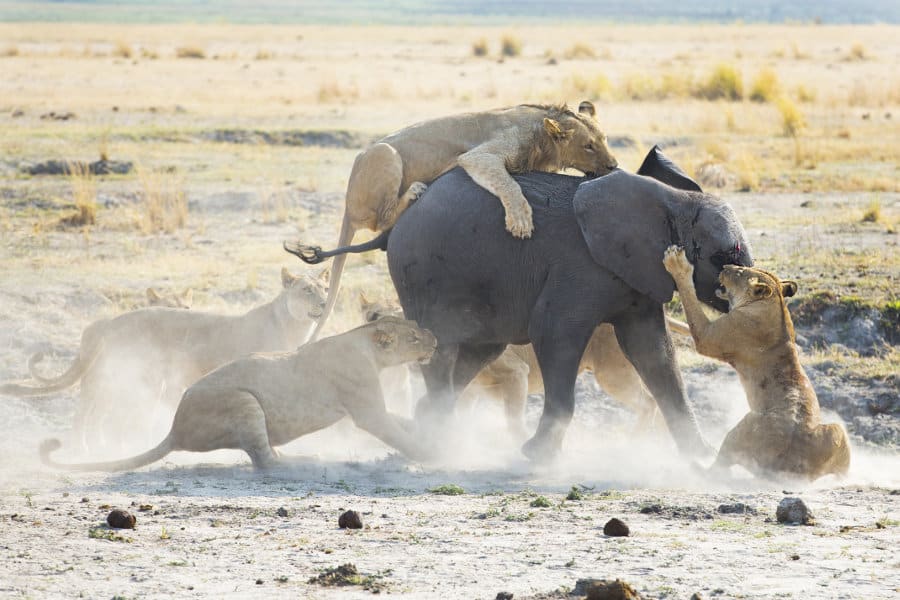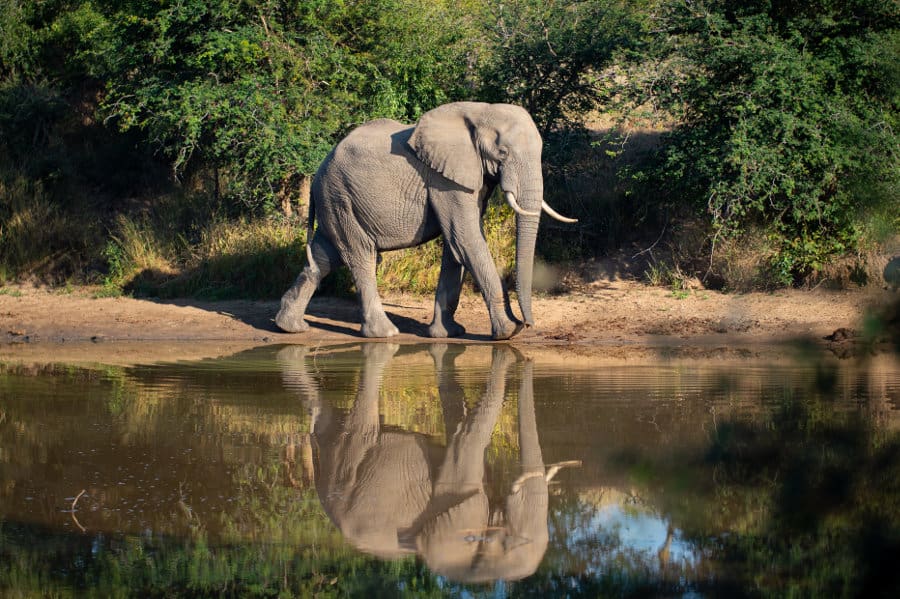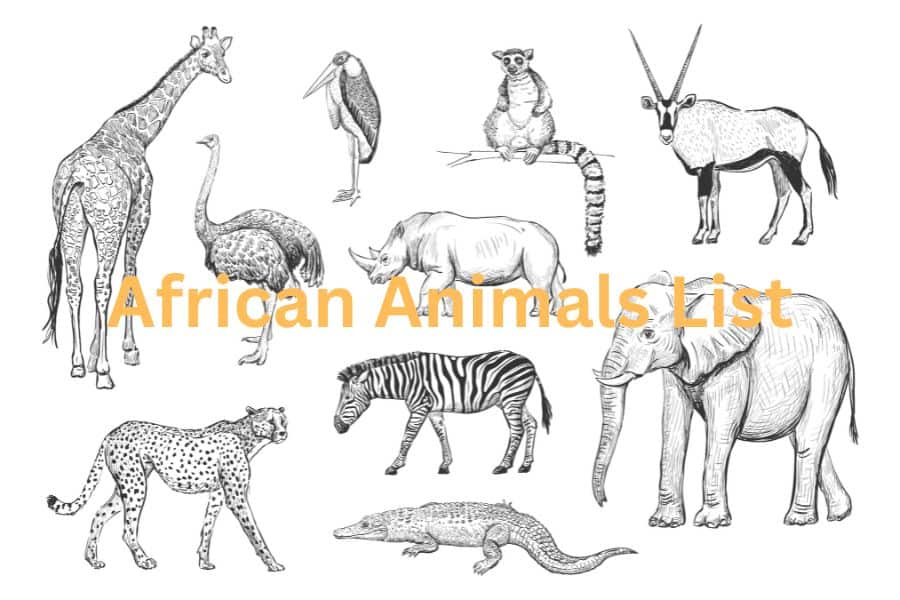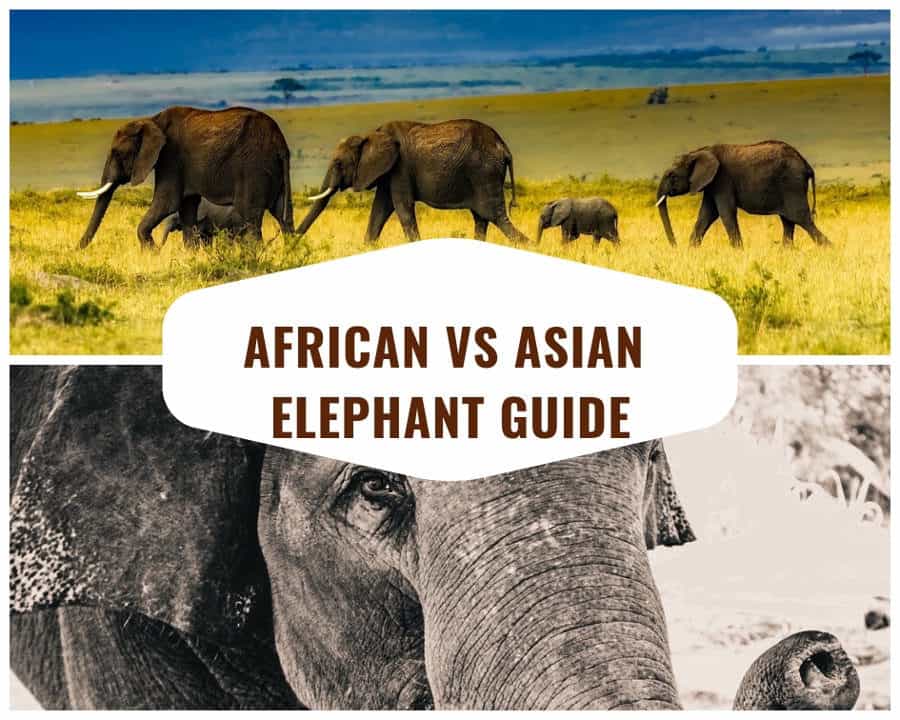It’s difficult to describe how enormous and imposing an African elephant is, especially to someone who has never seen one in person.
A bull elephant can stand more than three meters tall, and weigh up to six tonnes. Cow elephants aren’t much smaller.
They are also incredibly powerful and can overturn cars, destroy large patches of land and deal decisively with any trouble from other animals and people.
We don’t generally think of elephants as prey.
Do Any Animals Kill Elephants?
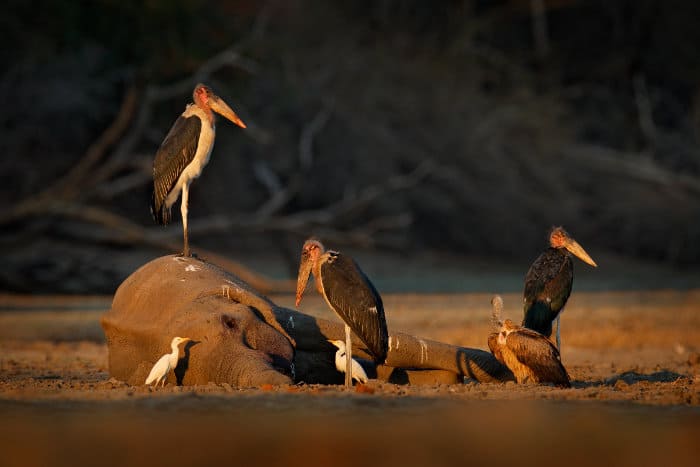
African elephants have no natural predators… officially. When it comes to the food chain, remarkably few other species fancy attacking an elephant. Chances are, they’re going to have a bad day if they get it wrong.
That doesn’t mean that other animals don’t try. And sometimes they do succeed.
Only the most powerful and opportunistic will have a chance of succeeding as an African elephant’s natural predator. We know of four main candidates in this regard.
There’s also an unexpected “enemy” that elephants seem to fear – but more about that later.
First, let’s talk about the four African predators in the wild that might have a chance of attacking, killing, and eating an African elephant.
Which Animals Eat Elephants?
As we mentioned, elephants have no natural predators in the wild. But from time to time, another animal hasn’t read the rules and attacks out of hunger and desperation.
So what are the African elephant’s predators?
Animals who stand a chance of taking on an elephant rely on at least one of two factors: power, or overwhelming numbers.
Even then, most will look for a young, sick or frail member of the elephant herd to attack.
1. Lions
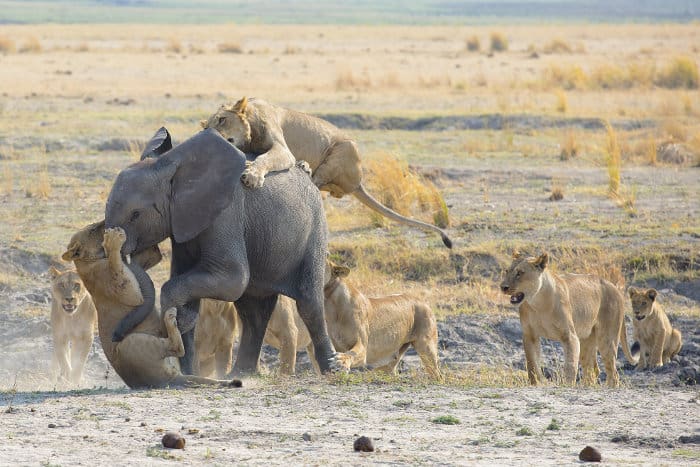
Elephant herds are very protective of their young. Single lions are still no match for a full-grown, angry female African elephant, powerful as they are.
It’s lucky then that when female lions hunt, they tend to hunt in groups. So a large group of lionesses might be able to take down a small elephant. It still requires a lot of work, though, and a big group.
As a predator of elephants, a male lion (or two) seems more likely to succeed because of his raw power. Male lions are much bigger and have a better chance, especially if they join a pride of females on a hunt.
One or two might be able to achieve the task at hand. The key to being successful is to separate a young or weak target from the herd. And this isn’t easy to do.
2. Hyenas
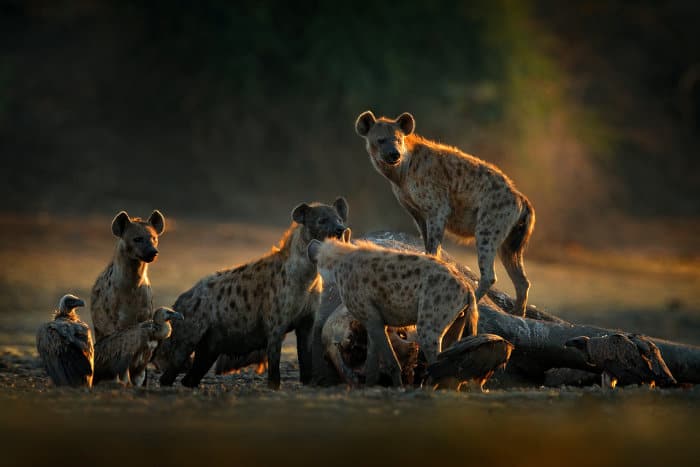
For a long time, we thought of hyenas only as opportunistic scavengers. But they are very efficient killers, especially the spotted hyena species when hunting in packs. So much so, that they do attack very young elephants.
Hyenas are small compared to lions, but they will try their luck in desperate times. Finding a vulnerable baby elephant isolated from its herd or mother is a rare opportunity, though.
It’s more common to see hyenas hanging around a herd when they spot a sick or dying elephant. They will wait until the animal is too weak or dies and take a chance to grab it when they can then.
3. Wild dogs
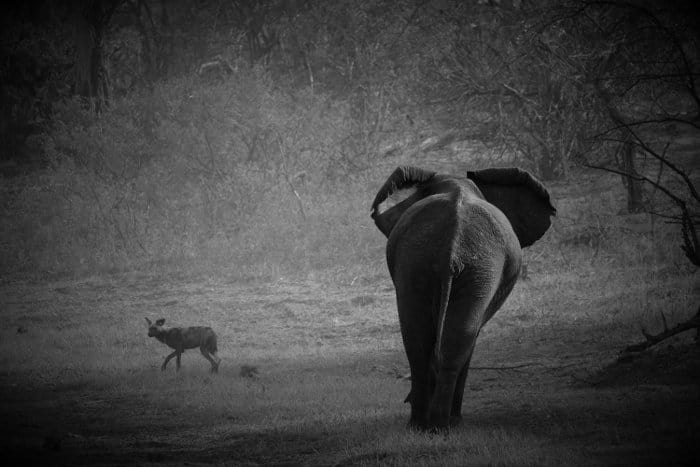
Like hyenas, on rare occasions large packs of wild dogs may attack very young elephants. They’re even smaller than hyenas, though, so it’s that much harder to succeed in that task. On the upside, they can hunt in groups of 20 or more.
They are extremely intelligent and efficient when it comes to hunting, so it’s best not to underestimate their cunning.
Wild dogs usually feed on smaller mammals like warthogs, antelope and even the odd buffalo calf. So a tiny elephant may not seem like such an ambitious target on a hungry day.
4. Crocodiles
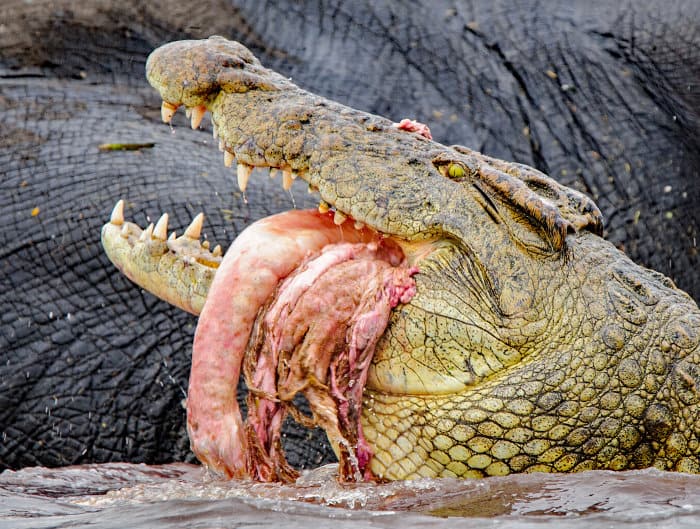
Sometimes, the location of the African elephants’ predators gives them a decided advantage.
A prehistoric, dangerous predator lurks in the rivers and waterways of Africa – the Nile crocodile. A large croc is always on the lookout for an easy meal.
One might attempt to ambush a young elephant wading in the water at a drinking hole. However, it won’t be safe from retaliation from the herd if it’s not quick enough.
Many a crocodile slow to the getaway has felt the wrath of a nearby adult protecting its young, which brings us to some fascinating elephant behaviour.
Elephant Prey: What Happens When Elephants and Predators Meet?
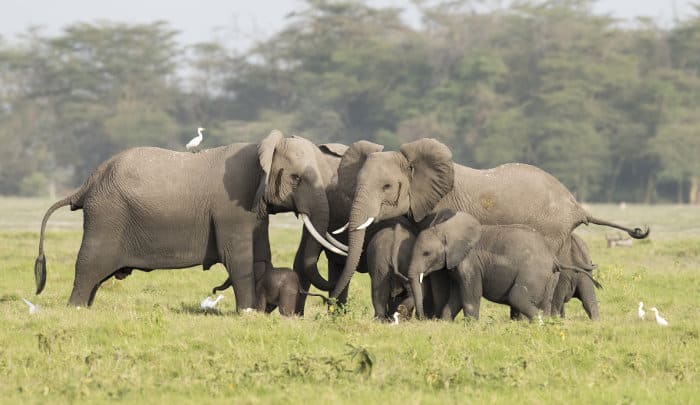
Elephants have a fascinating herd relationship. Older females are the protectors of the family unit. They will protect younger or weaker members by surrounding them when a predator is nearby.
The attackers will very seldom take on a full-grown, healthy individual, so this is usually enough to thwart an attack.
When a predator does manage to take down a member of the herd, elephants can attack in response. Sometimes they even protect the carcasses of other dead elephants.
This suggests a very protective emotional bond in elephants. Some even call their attacks against predators a sort of “revenge”. Most other animal herds don’t act this way.
Are There Other Elephant Enemies?
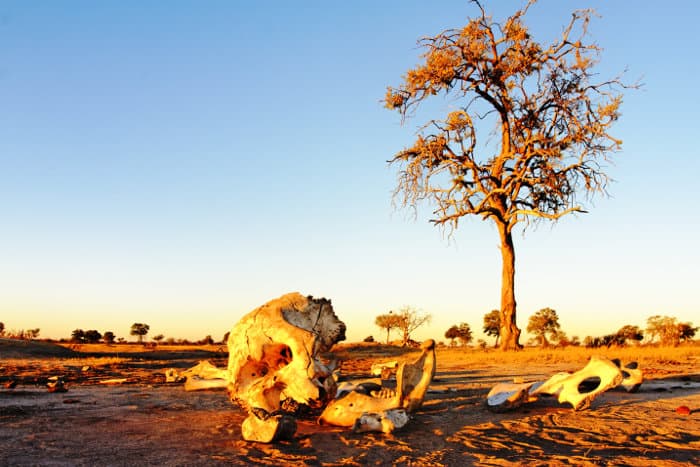
By far the greatest elephant enemy is humankind. Human poachers kill more elephants than any other species.
Elephant tusks are valuable and are usually the only things taken from the animal after it is killed. The rest of the carcass stays behind for scavengers, which is an enormous waste and a great shame.
Around 90% of the African elephant population declined due to hunting over the last 100 years. These gentle herbivores pose little physical threat to humans in return.
On a quirkier note: There’s at least one other “enemy” that African elephants seem to want to avoid.
Scientists have discovered that bees panic older elephants, causing them to run away, presumably to avoid being stung. Not exactly a predator, but an elephant running from a bee is a funny thought.
Aside from these, African elephants have no real threats in the wild. This is a good thing. They are fascinating, unique, and a treasure worth preserving for the planet.
